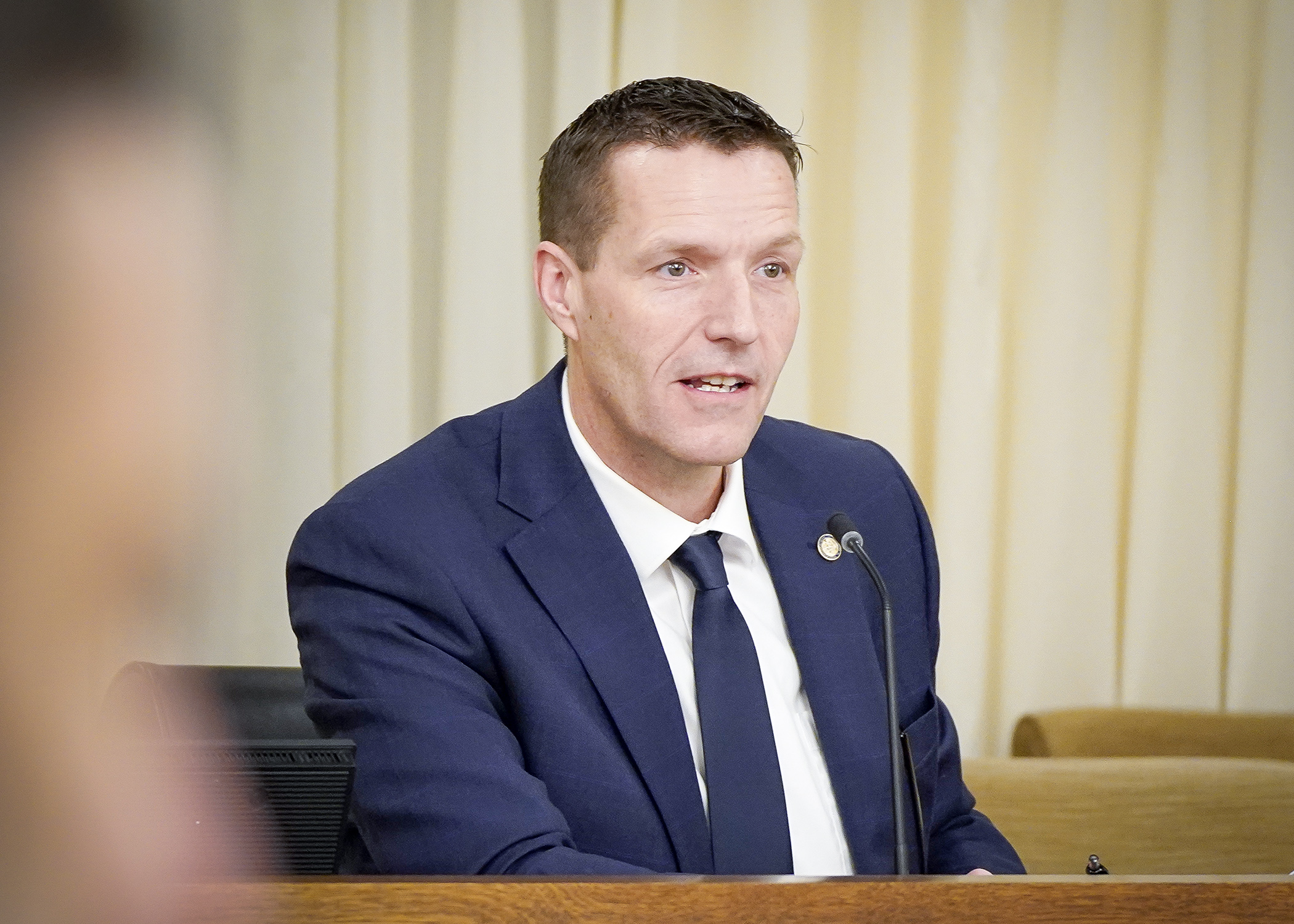Stronger reporting requirements focus of anti-fraud bill

DISCLAIMER: On Jan. 24, 2025, the Minnesota Supreme Court held that 68 members are necessary to constitute a quorum of the House. This webpage may reflect proceedings that occurred before that decision was issued and are no longer active. See Simon v. Demuth, No. A25-0066 (Minn. Jan. 24, 2025) (consolidated with Hortman et al. v. Demuth et al., No. A25-0068).
If you see something, say something.
Best known as part of a national campaign by the Department of Homeland Security to raise public awareness about terrorism and the importance of reporting suspicious activity to authorities, the phrasing is apt for a potential change in Minnesota.
Calling it a bill about “desperately needed accountability,” Rep. Ben Davis (R-Merrifield) sponsors HF2 that would require mandatory and immediate reporting by state employees if they suspect fraud in a program administered by the agency.
The notification would go to their supervisor, the Department of Administration, Office of the Legislative Auditor, law enforcement and the chairs and ranking minority members of legislative committees with jurisdiction over that agency’s budget. Current statute encourages such reporting.
Employees would have whistleblower protection.
“The time to act is behind us,” Davis told the House State Government Finance and Policy Committee Thursday, citing as examples the $250 million Feeding our Future fraud scheme and, more recently, possible Medicaid fraud by autism treatment center officials.
“This is a nonpartisan issue. (Taxpayers) are done with the state of Minnesota and this administration wasting, abusing and finding fraud is being done with their taxpayer dollars. … It is immoral for state agencies to turn a blind eye to fraud that’s happened over the last seven, eight years.”
The bill was laid over by the committee because a fiscal note is not yet available.
Also called for in the proposal is that agencies must, as part of their grantmaking policy:
- conduct at least one in-person, unannounced monitoring visit before final payment is made for any grant over $50,000 and at least annual in-person, unannounced monitoring visits for any grant over $250,000;
- conduct a financial reconciliation of each grant project expenditure prior to disbursement for any grant over $50,000; and
- withhold funds from any grantee that does not submit a progress report required under the grant agreement until the grantee submits a satisfactory report.
A state employee who knowingly violates at least one of the requirements would be guilty of a misdemeanor.
Furthermore, state grant agreements would be immediately suspended if the grantee is charged with a criminal offense relating to a state grant agreement. If a grantee is convicted, the grant would be terminated.
Acknowledging that “state funds must be used for their intended purpose,” Marie Ellis, public policy director for the Minnesota Council of Nonprofits, expressed concern, including “operational challenges of different weights.”
“Requiring nonprofits to complete financial reconciliation for every line item on state grants over $50,000 creates an excessive administrative burden, especially for smaller organizations, including almost all nonprofits based in rural areas, with limited staff and resources,” she wrote in a letter to the committee. “This requirement can divert time and effort from delivering programs and services, potentially undermining the grantee’s ability to fulfill the legislature’s intended activities and the nonprofit’s mission. Additionally, it will discourage nonprofits from applying for state grants altogether, reducing the state's ability to partner with community organizations to address critical needs.”
Related Articles
Search Session Daily
Advanced Search OptionsPriority Dailies
Speaker Emerita Melissa Hortman, husband killed in attack
By HPIS Staff House Speaker Emerita Melissa Hortman (DFL-Brooklyn Park) and her husband, Mark, were fatally shot in their home early Saturday morning.
Gov. Tim Walz announced the news dur...
House Speaker Emerita Melissa Hortman (DFL-Brooklyn Park) and her husband, Mark, were fatally shot in their home early Saturday morning.
Gov. Tim Walz announced the news dur...
Lawmakers deliver budget bills to governor's desk in one-day special session
By Mike Cook About that talk of needing all 21 hours left in a legislative day to complete a special session?
House members were more than up to the challenge Monday. Beginning at 10 a.m...
About that talk of needing all 21 hours left in a legislative day to complete a special session?
House members were more than up to the challenge Monday. Beginning at 10 a.m...